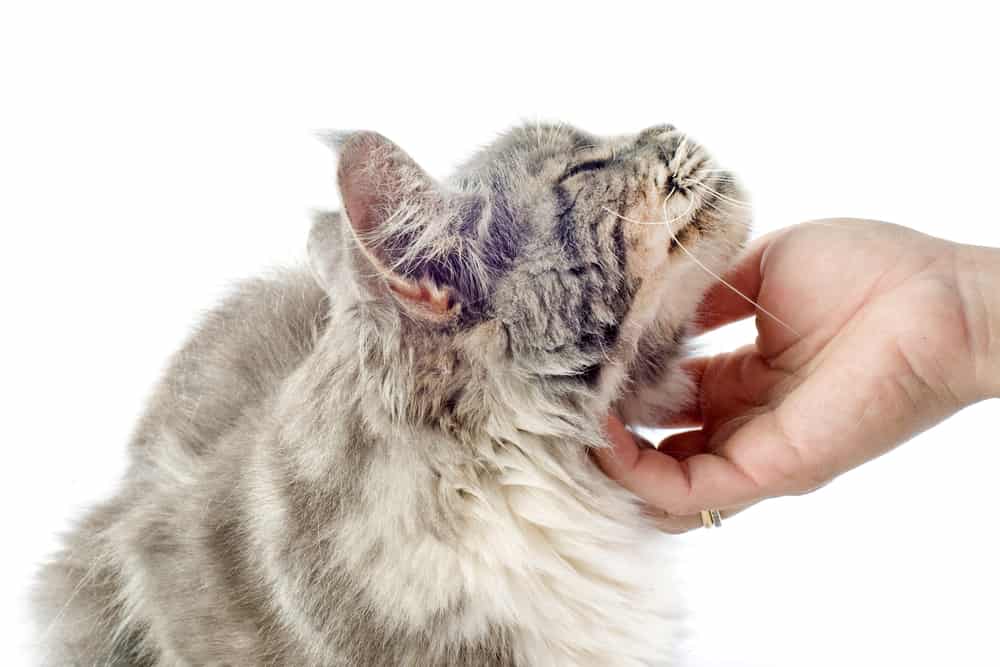
Cat owners often wonder whether cats get more affectionate with age.
A properly raised and socialized cat will become particularly friendly and affectionate as soon as she overcomes her teenage shenanigans. This overly loving phase, in most cats, lasts until reaching the senior years. Understandably, like older people, senior cats tend to be moody, grumpy, and irritable. Cats of certain breeds like Ragdoll, Scottish fold, and Sphynx are much more friendly than breeds like Abyssinian, LaPerm, and Norwegian Forest cats. Females are also more gentle and caring than males. If a warm-hearted cat suddenly starts acting hostile, you must investigate what triggered the change.
How To Tell That Your Cat Has Become More Affectionate?
Kittens are genuinely affectionate, and so are adult cats. However, cats tend to be a bit moody during their teenage years (just like people). After they enter their golden years, cats become more affectionate than seniors.
In those terms, cats are more affectionate after their teenage days (after around 18 months old) and before their senior days, mature cats (over middle age, seven years old).
Suppose your cat acts more affectionately toward you. In that case, it may follow you around more frequently, sit in your lap or rub its head against you for physical contact, purr more often, make slow blinking eye contact, vocalize to get your attention, or bring you gifts like toys or small prey.
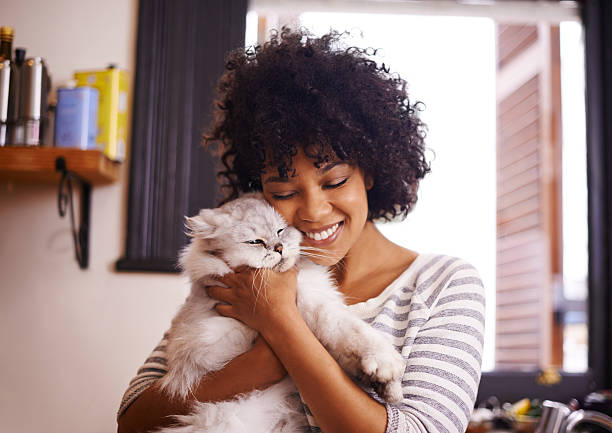
Are All Cats Equally Affectionate?
No, there are differences between cats based on many factors, including age, gender, and breed.
After they enter their golden years, cats become more affectionate than seniors. Generally, kittens and adult cats are cuddlier than senior cats, who tend to be grumpy. However, cats tend to be a bit moody during their teenage years (just like people).
In those terms, cats are more affectionate after their teenage days (after around 18 months old), and before their senior days, mature cats (over middle age, 7 years old).
As for gender, females are more affectionate and playful, while males prefer being bossy and independent.
Finally, the breed is essential too. The top three most affectionate cat breeds are the Ragdoll, the Scottish Fold, and the Sphynx. On the other hand, the top three least affectionate cat breeds are the Norwegian Forest cat, LaPerm Cat, and the Abyssinian cat.
Reasons Cats Suddenly Became More Affectionate and Clingy
Well, one of the reasons your cat is unusually less affectionate with age lately can be the lack of attention she is receiving.
However, there are other reasons. For example, a female cat or male cat in heat can become either super affectionate or extra irritable because of the physical effects of the unusual hormonal changes.
A cat may also be unusually warm and tender if a new pet is in the house and feels she must compete for your love and attention.
Finally, your adult cat may suddenly start acting more loving because she is mature, grown-up, and well aware you are her feline friend and primary source of food, water, and love.

Why Do Cats Become Less Affectionate?
If your cat suddenly stops being affectionate, you should spare time and investigate what is happening.
Sometimes a cat may become less friendly if going through a painful medical issue. For example, kittens tend to be moody during their teething phases.
Adult cats can also become more self-centered and less loving while in heat. The hormonal changes in the female cat’s body can go to extremes – either making her overly human-oriented or excessively anti-social.
Do Cats Get More Affectionate As They Age?
If a cat is not affectionate in general, it is almost always due to poor socialization and lack of human contact during the critical early years of development. However, you must investigate if an affectionate cat is reluctant to display cuddling behaviors.
Cats are very good at hiding pain and discomfort. Check for changes in your cat’s environment and other behavioral or physical changes. If nothing is unusual, have your cat examined by your trusted vet.
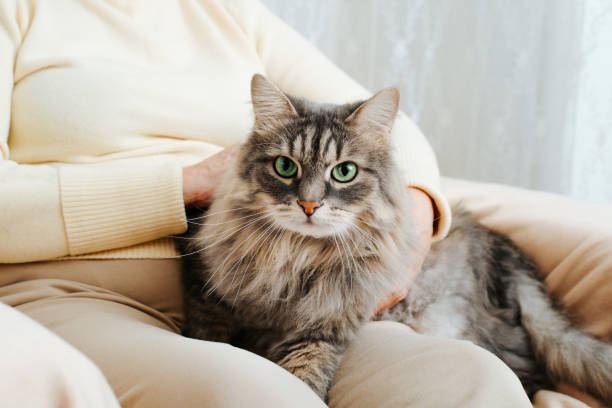
Do Male Cats/Female Cats More Affectionate than Others?
Although there isn’t a clear-cut answer to this, a few things could determine how friendly a cat is.
Since male cats are frequently more relaxed and easygoing than female cats, they could demand more attention and affection from their human friends. However, some male cats—especially unneutered —might also act aggressively in some cases.
Conversely, it’s commonly believed that female cats are more independent and less prone to crave attention and affection. However, each cat’s personality and socialization history can dramatically alter this.
Ultimately, it’s challenging to say whether male or female cats are more affectionate because cat personalities can vary substantially. Additional elements like socialization, environment, and heredity can also influence a cat’s behavior.
Are Neutered Cats More Affectionate to Cat Owners?
Although there isn’t a clear answer to this, some data suggest neutering may affect a feline’s personality and behavior.
Neutered males tend to be more friendly and less aggressive than their intact counterparts, according to a study by the American Society for the Prevention of Cruelty to Animals (ASPCA). Neutering usually eliminates the hormonal changes that can cause aggressive and territorial behavior.
It’s crucial to remember that each cat has a unique personality, and some neutered cats might not be more affectionate than intact cats. Additionally, a cat’s behavior is also influenced by other elements like socialization, environment, and heredity.
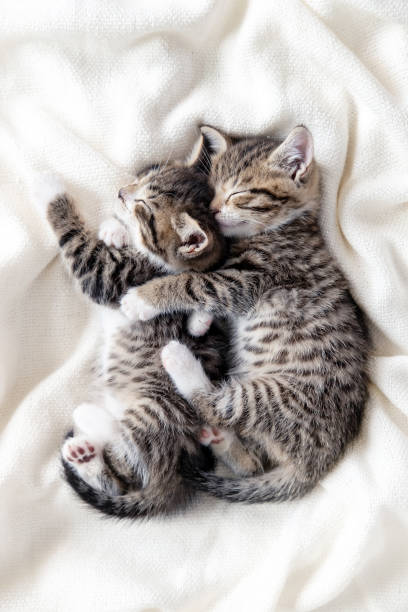
Are Kittens More Affectionate Than Older Cats?
Since they tend to be more lively and inquisitive than older cats, kittens may demand more love and attention from their pets and their human friends. But as cats get older, they frequently grow more content. They could spend more time relaxing or sleeping rather than actively seeking attention.
It’s vital to remember that each cat has its unique personality. Some senior cats may exhibit the same level of affection as younger ones. Regardless of age, socialization and early experiences can impact a cat’s behavior.
How Do Cats Show They Need More Attention?
Different cats have different ways of showing affection by saying, “I need more attention”. Some of the most common attention-seeking behaviors in cats include:
Excessive meowing or not meowing at all – a normally vocal cat will stop meowing. In contrast, a usually quiet cat will start meowing excessively.
Pawing or nudging – making physical contact is a widespread attention-seeking behavior in cats.
Messing with your work – if your cat constantly interrupts you, for example, sitting on the laptop keyboard while you are typing, she needs some alone time with you.
Waiting at the door – regardless of whether you went into the bathroom for a few minutes or spent an hour outside, your cat is waiting for you by the door. This cat behavior is unusual but a vital sign that your cat misses you.
What Should I Do If I Notice Changes In My Cat’s Affection Levels?
The first thing many cat owners say you should do is to evaluate the cat’s life and the overall situation. Cats are creatures of habit, and slight environmental changes can wreak havoc on their routines and put them in distress. A cat in pain is not an affectionate cat.
If there are no obvious reasons for your cat’s sudden cat suddenly affectionate change, it is advisable to schedule an appointment with your trusted vet. Medical issues causing pain can explain why your cat’s behavior is less loving.
How do I Choose an Affectionate Cat Or Kitten?
Since they tend to be more lively and inquisitive than older cats, kittens may demand more love and attention from their human friends. But as cats get older, they frequently grow more content. They could spend more time relaxing or sleeping rather than actively seeking attention.
It’s vital to remember that each cat has a unique personality. Some senior cats may exhibit the same level of affection as younger ones. Regardless of age, socialization and early experiences can impact a cat’s behavior.
Why Does My Cat Bite Me While Being Affectionate?
Typically, we assume biting is a bad thing. However, cats do not share this opinion. If your cat bites you while being affectionate, it is because she loves you. Yes, biting is a feline’s way of demonstrating love.
These bites are gentle and cautious, nothing like the typical bites your cat would afflict if your cat is defending herself or meaning to cause harm.
How Can I Tell If My Cat Likes Me?
Your cat uses many hints, habits, and body language signs to say she loves you. Some of the most popular feline ways of showing affection and saying “I love you” are:
- Slowly blinking at you
- Meowing back when you talk
- Kneading on you
- Sleeping very close to you
- Following you around.
How Can I Bond With My Cat To Make It More Cuddly?
The best way to show affection and bonding with your cat is by spending as much time as possible with her and playing. There are many interactive games you and your cat can play together.
Growing your cat into a cuddly, more affectionate with age- and people-oriented cat is not easy. However, it is achievable–you must be loving, consistent, and patient.
FAQ’s
Do cats become more independent or aggressive with age?
Kittens start being independent and more curious as the cat grows soon as they grow older and leave their mothers. This sudden change in cat behavior usually occurs in most kittens in the same way, around the age of two to three months.
Cats of old age can become more aggressive in particular situations or their cat behavior. Usually, older cats can be more aggressive because they have less energy, are more irritable, and are less likely to put up with behaviors they dislike.
Can cats become more vocal with time?
Cats tend to become more vocal as they age. Senior cats are more demanding and experience frequent mood swings or erratic behavior, making them meow or yelp more intensely and frequently than usual.
Conclusion
Whether a cat will be affectionate depends mainly on its personality and in which atmosphere it was grown up. If a kitten is raised to be cuddly and friendly, it will only become more loving over time. Many other factors are worth considering when discussing a cat’s affection tendencies.
Finally, there are specific situations and parts of the day when a cat may not feel in the mood to be adored. This is entirely understandable. We have our fair share of mood swings too. However, the cat’s breed, age, gender, and overall health also affect its tendency to be warm-hearted.
Pin & Share
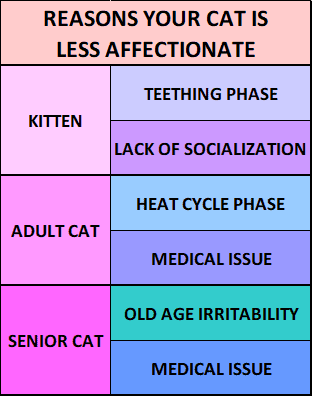
Please Share Your Thoughts in the Comments Below!
Happy Cat-Keeping!
